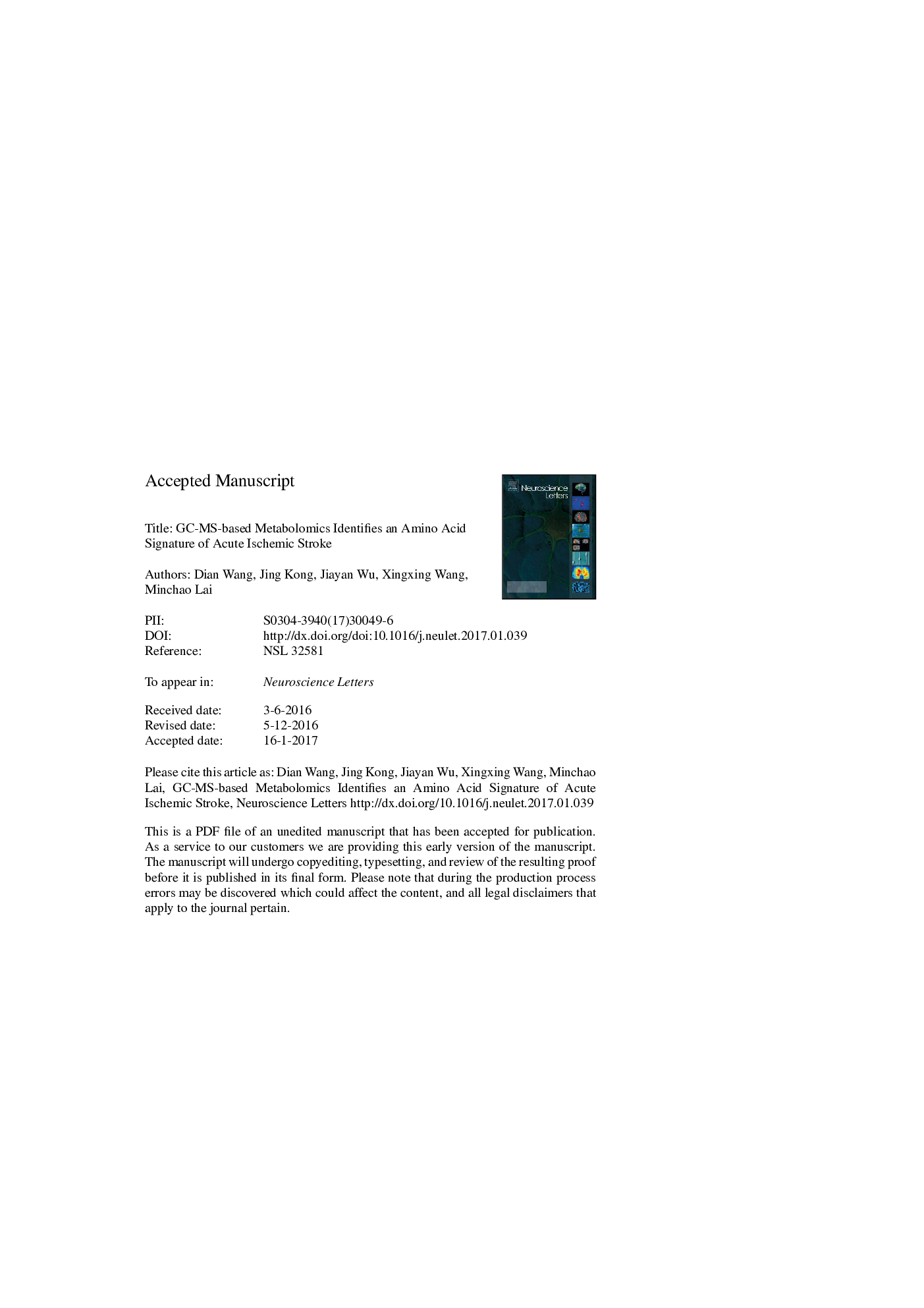| Article ID | Journal | Published Year | Pages | File Type |
|---|---|---|---|---|
| 5738659 | Neuroscience Letters | 2017 | 24 Pages |
Abstract
Ischemic stroke is a serious public health problem worldwide. Here, we characterized the metabolite features of acute ischemic stroke (AIS) using a gas chromatography-mass spectrometry-based metabolomics. Forty AIS patients and 29 sex and age-matched controls were recruited. The serum metabolic profiles were significantly different between the two groups. Compared to the controls, the patients had elevated levels of lactate, carbonate and glutamate (PÂ <Â 0.01), and lowered levels of alanine, citrate, glycine, isoleucine, leucine, serine, tyrosine, methionine, tryptophan, erythronic acid, urea, purine, hypoxanthine, and proline in the serum (PÂ <Â 0.05). Amino acids are the most important disturbed metabolites. Most dysregulated metabolites are closely correlated with each other and with several biochemical indices. The differential metabolites reflect pathophysiological processes of inflammation, energy deficit, oxidative stress, neurotoxicity, neuro excitation and injury. Tyrosine, lactate, and tryptophan were screened as a panel of potential biomarkers of AIS, jointly enabling a high precision (91.7%) to diagnose AIS by classification and regression tree (CRT). Collectively, we discovered a marked perturbation of metabolome of AIS in the serum, mainly associated with amino acid-related metabolism. Tyrosine, lactate, and tryptophan may be considered as potential biomarkers of AIS.
Related Topics
Life Sciences
Neuroscience
Neuroscience (General)
Authors
Dian Wang, Jing Kong, Jiayan Wu, Xingxing Wang, Minchao Lai,
